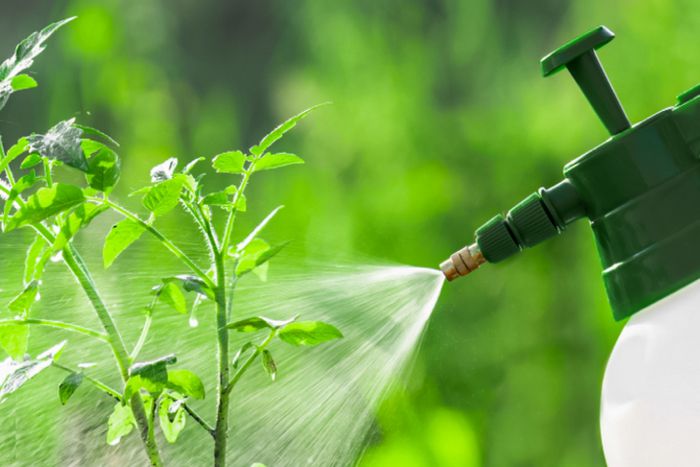Rotten egg smell in house can be a real nuisance, often pointing to hidden problems. This guide will explore potential sources, from plumbing issues to appliance malfunctions, and help you pinpoint the cause and implement effective solutions. We’ll delve into identifying the smell’s origin, troubleshoot various scenarios, and even discuss preventive measures to keep that sulfurous odor at bay.
Imagine waking up to the unmistakable stench of rotten eggs, permeating your home. This pungent odor, often associated with sulfur, can be incredibly frustrating and, in some cases, even dangerous. This comprehensive guide will help you systematically investigate the source of this unwelcome aroma, offering practical advice to identify and resolve the issue.
Identifying the Source
The persistent rotten egg smell in your home is a nuisance, but pinpointing the source is crucial for effective resolution. This guide details potential causes, categorized by room, and offers a systematic approach to locate the culprit. Understanding the characteristics of each potential source will help you zero in on the problem.This comprehensive approach is designed to help you identify the source of the offensive odor, ultimately leading to a more comfortable and healthy living environment.
Potential Causes by Room
Identifying the room of origin is the first step in diagnosing the problem. Different areas of the house have different potential sources for a rotten egg smell, reflecting the specific plumbing, appliances, and environmental factors present.
- Kitchen: Gas leaks from stoves or ovens, or problems with the refrigerator’s seal or internal components. Leaks in the garbage disposal or a malfunctioning drain can also contribute to the odor. A characteristic of a gas leak is a noticeable hissing sound, in addition to the smell. Refrigerator malfunctions often have a less intense smell, which might be more noticeable if food is decomposing.
- Bathroom: Clogged drains, particularly in the shower or bathtub, can release sewer gases. A malfunctioning or old plumbing system in the bathroom could also cause the smell. Sewer gases often have a more pungent, sulfurous smell compared to other sources. A clogged drain usually produces a less intense but more persistent smell.
- Laundry Room: A drain blockage in the washing machine or the laundry room’s plumbing system is a likely cause. The smell will typically be localized to the laundry room, especially if it’s connected to a drain line with a similar issue.
- Basement or Crawl Space: Sewer gases rising from a clogged drain or a problem with the main sewer line can travel up through the house, causing a persistent smell. This smell is often very strong, particularly in lower-level areas, due to the accumulation of gases.
Smell Characteristics
Understanding the nuances of the smell can significantly narrow down the potential sources.
That awful rotten egg smell in my house had me completely stumped! Turns out, it’s often a sign of something lurking in the plumbing, but sometimes it can be surprisingly related to something completely different like fertilizer build-up. Have you ever considered using eggshells for your plants? It turns out that using eggshells as a natural fertilizer can actually be quite helpful in your garden.
For more on the benefits of are eggshells good for plants , check out this resource. So, while eggshells might seem unrelated to the smell, it’s important to rule out all possible causes. Perhaps a little detective work is needed to find the source of the rotten egg smell in my house.
- Sewage: A strong, pungent, and sulfurous smell is a hallmark of a sewage leak or a blocked drain. It often has a distinctly unpleasant, almost putrid quality.
- Plumbing: A less pungent, but persistent, smell that might be noticeable in areas close to plumbing fixtures. It’s often described as musty or damp.
- Appliances: A gas leak will have a distinct sulfurous odor, often accompanied by a hissing sound. Leaks in the refrigerator or other appliances may produce a more subtle, less intense smell, related to decaying food or other materials.
Systematic Inspection Checklist
This checklist provides a systematic approach to identify the source of the smell.
- Start in the kitchen: Inspect appliances, drains, and any potential gas connections. Look for signs of leaks, clogs, or other issues.
- Check bathrooms: Inspect drains, showerheads, and any visible plumbing connections. Look for signs of leaks or clogs.
- Inspect laundry areas: Check the washing machine, dryer, and related plumbing for leaks, clogs, or unusual sounds.
- Examine lower levels: Check the basement or crawl space for signs of sewer gas, or other unusual smells.
- Note smell intensity and location: Keep track of where the smell is strongest.
Smell Comparison Table
This table summarizes the different smells associated with potential sources.
| Source | Smell Description | Intensity | Location |
|---|---|---|---|
| Sewage | Strong, pungent, sulfurous | High | Often concentrated near plumbing, lower levels |
| Plumbing | Musty, damp, less pungent | Medium | Near plumbing fixtures |
| Appliances (gas leak) | Distinct sulfurous odor | High | Localized near appliance |
| Appliances (other) | Subtle, decaying food odor | Low to Medium | Localized near appliance |
Smell Intensity and Location Method
This method details how to identify the smell’s intensity and location.
- Identify strongest areas: Note where the smell is most pronounced.
- Map smell intensity: Use a simple map or diagram to mark areas with different intensities of smell.
- Observe the smell over time: Notice any changes in intensity or location.
Potential Problem Areas
That rotten egg smell permeating your home can be incredibly frustrating. Pinpointing the source is the first step, but understanding thepotential* problem areas is crucial for effective troubleshooting. This section delves into various scenarios that can lead to this unpleasant odor, ranging from common household appliances to more complex plumbing and environmental issues.Identifying the source of the smell is the first step, but understanding the potential problem areas is crucial for effective troubleshooting.
This section will cover different possibilities, from typical household appliances to plumbing and environmental concerns.
Refrigerator Odors
Refrigerators, while essential for food preservation, can become breeding grounds for unpleasant smells if not properly maintained. Food spoilage, especially protein-rich items like meat and fish, can release sulfurous compounds that contribute to the rotten egg smell. Improperly sealed containers or overflowing shelves can also allow these smells to spread throughout the refrigerator. Additionally, a malfunctioning refrigerator’s compressor or defrost system can sometimes lead to the build-up of bacteria and mold, amplifying the odor.
Dishwasher Odors
Dishwashers, designed to sanitize dishes, can occasionally become a source of a rotten egg smell. Food particles trapped inside the dishwasher, especially in areas like the spray arms and filter, can decompose and produce unpleasant odors. A buildup of mineral deposits or a clogged drain can also contribute to this problem. Furthermore, a malfunctioning water pump or a faulty drain system can lead to stagnant water, fostering bacterial growth and resultant odor.
Garbage Disposal Odors
Garbage disposals, while convenient for food waste, can quickly become sources of a rotten egg smell if not properly maintained. Food scraps, if not adequately ground, can decompose in the disposal’s chamber, releasing foul odors. Overloading the disposal with large or fibrous materials can also prevent proper grinding, leading to buildup and subsequent smells. Similarly, a clogged disposal can lead to stagnant water and decomposition, exacerbating the issue.
Plumbing-Related Odors
Plumbing issues are frequently linked to the rotten egg smell. Leaks in pipes, particularly those carrying sewer gases, can allow these gases to seep into the house. Clogs in drains, especially those connected to the sewer line, can trap gases and create a foul odor. Severe sewer backups can release substantial amounts of hydrogen sulfide, creating a potent and pervasive rotten egg smell throughout the house.
Furthermore, improper venting of plumbing lines can allow sewer gases to enter the home.
Building Material-Related Odors
Dampness and mold within the walls, floors, or ceilings of a house can produce a variety of unpleasant odors, including a rotten egg smell. Mold, particularly black mold, thrives in moist environments and releases volatile organic compounds that can be perceived as a sulfurous smell. Water damage, whether from leaks or other sources, can create an environment conducive to mold growth.
Additionally, poor ventilation in areas like basements or crawl spaces can lead to moisture buildup and resultant odors.
Organic Matter-Related Odors
Organic matter decomposition, both inside and outside the home, can cause the rotten egg smell. Uncollected garbage or overflowing compost bins can produce hydrogen sulfide gas, contributing to the odor. Pet waste, if not properly disposed of, can also decompose and generate foul odors. Similarly, if a sewer line is not properly maintained or if a nearby septic tank is failing, it can release sulfurous gases.
Outside Sources of Odors
Certain sources outside the home can also contribute to the rotten egg smell. Nearby industrial facilities or agricultural operations sometimes release sulfurous gases into the air. If a gas leak occurs in the neighborhood, it can be detected by its distinctive smell, often described as rotten eggs. These external sources can diffuse into the home through open windows or ventilation systems.
That awful rotten egg smell creeping through my house is driving me nuts! I’ve been trying everything to pinpoint the source, and honestly, sometimes I wonder if it’s coming from somewhere outside. Maybe it’s a hidden leak or something in my garden. To help narrow down the possibilities, I’ve been thinking about how I clean outdoor furniture and areas how I clean outdoor furniture and areas.
Could it be something like stagnant water or a decaying plant? Maybe I should do a deep clean of the surrounding areas to see if it helps clear the smell. Still, I’m stumped. Hopefully, this will help me find the source of the awful smell.
Also, if a nearby sewer line is experiencing a backup or leak, the smell can be carried by the wind and enter the house.
Troubleshooting Steps
That rotten egg smell is definitely a nuisance, and potentially a sign of a serious problem. Now that we’ve identified potential problem areas, it’s time to dive into the troubleshooting steps to pinpoint the source and get rid of that unpleasant odor. A systematic approach is crucial to avoid wasting time and energy on fruitless searches.Addressing plumbing, appliance, building material, organic matter, and external sources systematically will help isolate the cause.
This process often requires careful observation, testing, and a bit of detective work. Let’s tackle these areas head-on.
Plumbing Issues
Plumbing problems are a frequent cause of a sulfurous odor. Leaks, clogs, and faulty fixtures can all release hydrogen sulfide gas, the culprit behind that rotten egg smell. Thorough checks are essential to locate the source quickly.
- Inspect all visible plumbing lines for leaks. Look for water stains, damp patches, or unusual moisture buildup. Use a flashlight to check hard-to-reach areas.
- Check drains and pipes for clogs. Use a drain snake or a plumber’s snake to clear blockages. Be cautious when using chemicals, as they can harm pipes.
- Examine fixtures for leaks. Look for dripping faucets, running toilets, or showerheads that don’t shut off properly. A dripping faucet can waste a significant amount of water over time.
- Consider calling a plumber if the problem persists or if you’re unsure about any aspect of the plumbing system. A professional can diagnose the problem accurately and provide the appropriate solutions.
Appliance-Related Issues
Certain appliances, particularly those with water-heating elements, can sometimes be the source of the odor.
That awful rotten egg smell creeping into your house? It could be a sneaky sign of something more than just a dodgy fridge. Sometimes, hidden under the surface of a seemingly unrelated issue, like improperly applied exterior paint, is the culprit. If you’re considering updating your exterior, understanding the differences between exterior paint spraying vs brushing exterior paint spraying vs brushing could actually play a role in preventing this unpleasant odor.
It’s worth considering the best approach to avoid problems down the line, as the wrong technique can lead to issues with ventilation and potentially, a sulfurous smell. Hopefully, identifying the source will lead you to a fresh-smelling home!
- Check dishwashers and washing machines for leaks or clogs. Inspect the drain hoses for any signs of damage or kinks. A build-up of debris in the drain lines can lead to clogs and odors.
- Examine water heaters for leaks or unusual sounds. A water heater that’s leaking or emitting strange noises may be the culprit. A water heater’s tank can develop leaks, leading to water damage and a strong rotten egg odor.
- Inspect garbage disposals for clogs or issues with the seal. A faulty seal can allow odors to escape. If the garbage disposal is creating a foul smell, check for clogs or a malfunctioning seal.
Building Material Issues
Certain building materials, especially those containing sulfur or sulfates, can release gases under specific conditions.
- Examine any recently installed or repaired materials for possible sulfur or sulfate content. Look for evidence of improper installation or materials that aren’t suited for the environment.
- Check for cracks or gaps in walls or floors. These openings can allow outside gases to enter the house. Cracks and gaps in walls or floors can allow gases to penetrate the interior.
- Inspect the foundation for any signs of water damage or leaks. Moisture can cause chemical reactions that result in the release of unpleasant gases. Water damage to the foundation can lead to the release of hydrogen sulfide gas, resulting in the characteristic rotten egg smell.
Organic Matter Issues
Organic matter decomposition can sometimes produce sulfur-containing gases.
- Inspect areas with excessive moisture or standing water for signs of organic matter decomposition. Look for signs of rotting vegetation, mold, or mildew. Water damage can lead to organic matter decomposition, which can release hydrogen sulfide gas.
- Check for any evidence of sewage or septic tank backups. These backups can release foul-smelling gases into the home. If sewage or septic tank backups occur, they release unpleasant gases.
- Ensure proper ventilation in areas where organic matter might accumulate. Good ventilation can prevent the buildup of gases and moisture. Adequate ventilation in areas prone to moisture buildup helps prevent organic matter decomposition and the associated odor.
External Issues
Sometimes the source of the odor isn’t within the home.
- Check for nearby sewer lines or septic systems for leaks or issues. Nearby issues can sometimes affect your home. A leak or blockage in a nearby sewer line or septic system can release foul-smelling gases into your home.
- Talk to neighbors or local utility companies about any recent sewer or water main work in the area. Check with neighbors or utility companies for potential external sources. Recent work on nearby sewer or water main lines can sometimes cause issues.
Prevention Strategies: Rotten Egg Smell In House

Dealing with a rotten egg smell in your home can be frustrating. Preventing its recurrence is key to maintaining a pleasant living environment. This involves a proactive approach to hygiene, ventilation, and plumbing maintenance. A well-maintained home is less likely to harbor the sources of this unpleasant odor.Proper preventative measures go beyond just reacting to the problem; they establish a proactive system to minimize the risk of future occurrences.
By understanding the potential sources and implementing appropriate preventative strategies, you can significantly reduce the likelihood of this issue arising again.
Ventilation Strategies
Adequate ventilation is crucial in preventing the buildup of odors. Stagnant air allows odors to linger and intensify. Regular air circulation helps to dissipate potential sources of smell.
- Ensure proper exhaust fans are functioning correctly in kitchens and bathrooms. This helps remove cooking smells and moisture, which are potential contributors to odors.
- Open windows regularly, especially in areas prone to odor accumulation. Natural ventilation is an effective way to improve air circulation and prevent odors from building up.
- Consider using exhaust fans in areas where potential odor sources are located, such as laundry rooms and garages. These can significantly improve air quality and reduce the chance of unpleasant smells.
Plumbing Maintenance
Plumbing issues are a common source of rotten egg smells. Regular maintenance can help identify and address problems before they escalate.
- Inspect and maintain drains regularly. Check for clogs, leaks, and other potential issues. Using drain cleaning solutions can be helpful but should be used with caution.
- Address any leaks promptly. Leaks can create ideal conditions for bacterial growth and the production of odors. A timely repair is essential to prevent further issues.
- Ensure proper drainage in areas like sinks and showers. Slow or stagnant water can lead to the accumulation of gases, contributing to unpleasant smells.
Appliance Hygiene
Appliances, particularly those used for food preparation, can be sources of odors. Maintaining their hygiene can significantly reduce the risk of unpleasant smells.
- Clean dishwashers regularly to prevent food particles and debris from accumulating. Regular cleaning will help prevent foul odors from building up within the dishwasher itself.
- Keep refrigerators clean and organized. Proper organization and regular cleaning prevent the buildup of food particles and the growth of bacteria, which can produce odors.
- Maintain garbage disposals. Regular cleaning and maintenance of garbage disposals can prevent clogs and lingering smells.
Preventive Measures by Area
A proactive approach to maintaining cleanliness and ventilation across different areas of the house can greatly reduce the risk of unpleasant smells.
| Area | Preventive Measures |
|---|---|
| Kitchen | Regular cleaning of sinks, drains, and appliances. Using exhaust fans effectively and keeping countertops clean. |
| Bathrooms | Regular cleaning of drains, ensuring proper ventilation, and maintaining fixtures. Proper ventilation prevents moisture buildup. |
| Laundry Room | Regular cleaning of drains, using exhaust fans where applicable, and maintaining proper ventilation to prevent moisture buildup. |
| Garage | Regular cleaning and proper ventilation to avoid the buildup of potential odor sources. Keeping any potential odor sources well-contained. |
Illustrative Examples
Unmasking the culprit behind that pungent rotten egg smell in your home requires a bit of detective work. Different sources produce varying degrees of odor intensity and persistence, and understanding these scenarios helps pinpoint the issue more effectively. These examples illustrate how different problems manifest as a rotten egg smell.
Refrigerator Malfunction
A malfunctioning refrigerator, especially one that’s not maintaining a consistent cold temperature, can create an environment conducive to bacterial growth. Food spoilage, particularly protein-rich items like meat and dairy, releases gases like hydrogen sulfide, leading to the distinctive rotten egg odor. This smell often emanates from the refrigerator’s interior, especially near the food items that are spoiling. The odor can be concentrated around the food that is going bad, and the smell may not be pervasive throughout the entire house.
The smell’s intensity can vary depending on the extent of spoilage and the refrigerator’s insulation and sealing effectiveness.
Plumbing Leak and Sewer Gas
A plumbing leak, particularly one near a sewer line, can introduce sewer gases into your home’s plumbing system. These gases, often containing hydrogen sulfide, will then permeate the air in your home. The smell will likely be concentrated in the area closest to the leak, and its intensity might vary depending on the leak’s size and location. The smell might be subtle at first but can become more intense over time.
This situation often manifests as a strong, persistent rotten egg odor, especially in the vicinity of bathrooms, kitchens, or laundry rooms.
Dampness in Walls
Dampness in walls, especially in areas with poor ventilation, can foster the growth of anaerobic bacteria. These bacteria produce hydrogen sulfide, the gas responsible for the rotten egg odor. The smell is usually noticeable in the affected areas, such as basements, bathrooms, or rooms with high humidity. The intensity of the smell can vary depending on the extent of moisture and the type of material the walls are made of.
The odor will linger in the area with the high moisture content.
Organic Waste Accumulation, Rotten egg smell in house
Accumulation of organic waste, like improperly disposed of food scraps or decaying vegetation in a drain or garbage disposal, can create anaerobic conditions. This leads to the generation of hydrogen sulfide, causing the rotten egg smell. The smell is typically concentrated in the area where the waste is accumulating, such as a drain, garbage disposal, or even a compost bin that is not properly sealed.
The smell can be stronger if the organic waste is left unattended for an extended period.
Sewer Backup
A sewer backup, a serious plumbing issue, is one of the most potent sources of the rotten egg smell. A blocked or damaged sewer line can cause sewage to back up into your home’s plumbing system, releasing a noxious mix of gases, including hydrogen sulfide. The smell will often be very strong and pervasive throughout the house, especially if the backup is substantial.
The odor will likely be accompanied by other unpleasant sewer-related smells. This situation requires immediate attention from a plumber to address the backup.
Troubleshooting Scenarios
Unmasking the culprit behind that foul rotten egg smell can be a detective’s challenge. Pinpointing the source requires systematic investigation and a keen eye for detail. This section dives into specific troubleshooting steps for common causes, providing a roadmap to identify and eliminate the odor’s source.
Dishwasher Odor
Identifying a malfunctioning dishwasher as the culprit is crucial. A buildup of food particles and debris can lead to anaerobic bacterial activity, releasing hydrogen sulfide gas, the hallmark of rotten eggs.
- Inspect the Dishwasher Interior: Carefully examine the dishwasher’s interior for any visible food residue or clogs. Look for food particles lodged in the spray arms, filter, or bottom of the unit. Clean any residue using warm soapy water. A dirty filter can severely hamper the dishwasher’s efficiency, contributing to the odor.
- Check the Drain Line: Verify the dishwasher’s drain line isn’t clogged. A partial blockage can prevent proper water drainage, creating ideal conditions for bacterial growth. Use a drain snake to clear any clogs in the drain line.
- Verify Water Supply: Ensure the water supply to the dishwasher isn’t contaminated. If the water itself smells foul, the issue is likely upstream of the dishwasher. Check the water supply line for leaks or blockages.
- Inspect the Dishwasher’s Seal: Examine the door seal for any cracks or gaps. A poorly sealed door can allow odors to enter and potentially be trapped within the unit.
- Run a Cleaning Cycle: Execute a cleaning cycle with a commercial dishwasher cleaner to remove any remaining residue and eliminate bacteria.
Clogged Drain Odor
A clogged drain is a frequent source of foul odors, often mimicking the stench of rotten eggs. The stagnation of water and organic matter creates an environment ripe for bacterial decomposition.
- Locate the Drain: Identify the specific drain responsible for the odor. This could be a sink drain, bathtub drain, or even a floor drain.
- Use a Drain Snake: Employ a drain snake to clear any clogs in the drain line. Carefully push the snake down the drain, rotating it to dislodge any obstructions.
- Use a Plunger: If a drain snake isn’t effective, use a plunger to create suction and dislodge any blockages.
- Inspect the Trap: Inspect the drain trap for any debris or blockages. A drain trap is a U-shaped pipe that collects water, preventing sewer gases from entering the home.
- Consider a Professional Plumber: If the problem persists, consult a professional plumber to inspect the drain line for significant blockages or underlying structural issues.
Pipe Leak Odor
A leak in a pipe, especially a plumbing pipe, can cause a rotten egg smell due to the presence of hydrogen sulfide. The water in contact with the pipe’s interior will likely cause bacterial growth.
- Locate the Leak: Carefully inspect the pipes for any signs of leakage. Look for wet spots on walls, floors, or ceilings. Listen for unusual dripping or gurgling sounds.
- Inspect for Water Damage: Examine the area for signs of water damage, such as discoloration, mold growth, or structural weakening.
- Check for Leaks in the Plumbing: Look for signs of leaks around fixtures, such as faucets, toilets, or showerheads.
- Call a Plumber: Contact a qualified plumber to investigate and repair the leak. A professional assessment is essential for determining the extent of the damage and the most appropriate repair method.
Mold Growth Odor
Mold growth is often a significant contributor to a rotten egg odor. Mold can release various volatile organic compounds (VOCs), including hydrogen sulfide, that produce the distinctive odor.
- Identify the Mold Location: Locate the area where the mold is growing. This could be a damp corner, a wall cavity, or even under a sink.
- Clean the Affected Area: Clean the affected area with a solution of bleach and water. Ensure the area is well-ventilated during and after cleaning. Wear appropriate protective gear, such as gloves and a mask.
- Address Moisture Issues: If the mold growth is persistent, identify and rectify the underlying moisture problem. This may involve addressing leaks, improving ventilation, or installing dehumidifiers.
- Consider Professional Mold Remediation: If the mold growth is extensive or in hard-to-reach areas, consult with a professional mold remediation service.
Organic Decomposition Odor
Decomposition of organic matter outside the home can lead to the release of foul odors, including the distinctive smell of rotten eggs. Organic waste is a breeding ground for bacteria that produces hydrogen sulfide.
- Identify the Source: Locate the source of the outdoor organic decomposition, which might be decaying vegetation, animal waste, or improperly disposed of garbage.
- Address the Source: Remove or dispose of the organic matter properly. If the source is animal waste, contact local authorities for proper disposal methods.
- Improve Drainage: Improve drainage in the area to prevent water from pooling around the decomposing matter.
- Consider Professional Removal: If the source is large or difficult to remove, consider hiring a professional waste removal service.
Outcome Summary

From appliance malfunctions to plumbing leaks, we’ve uncovered a variety of potential culprits behind that awful rotten egg smell. By systematically checking different areas of your home and understanding the characteristics of various odors, you can often pinpoint the source. Remember, early detection and swift action are crucial to resolving the problem and preventing further damage. Hopefully, this guide empowers you to confidently tackle this common household issue.






